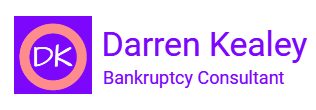Alternatives To Bankruptcy
Individual Voluntary Arrangements
Individual Voluntary Arrangements, often abbreviated to IVAs, are the main bankruptcy alternative.
In essence, the main attraction for an insolvent individual is that they get to avoid bankruptcy. For the creditors, the key advantage is that they get to enjoy a greater return against their claim than they would in bankruptcy.
A typical IVA lasts for 5 years during which the debtor makes a contribution from income each month for the benefit of creditors.
It is not necessary to pay creditors back in full in an IVA. The monthly contribution is assessed according to the debtor’s ability to pay from surplus income.
During the course of the IVA, creditors will receive regular dividend payments and at the end of the Arrangement, the debtor is debt-free.
Whilst an IVA helps the debtor avoid bankruptcy, it is still a formal procedure and the agreement entered into is legally binding.
If the debtor breaches the terms of the Arrangement, it will fail, leaving the debtor exposed to action from creditors once again.
The IVA must be proposed through a licensed insolvency practitioner who acts as Nominee whilst he helps formulate the proposals and Supervisor when the IVA is agreed by creditors.
I have excellent relationships with a number of insolvency practitioners who will work hard on your behalf to get your IVA agreed by creditors.
A more detailed appraisal of IVAs can be found here
Debt Relief Orders
Debt Relief Orders, often abbreviated to DROs, are an excellent solution for people with lower levels of debts and few or no assets.
They are considered to be a lighter form of bankruptcy. Like with bankruptcy, DROs are managed by the Official Receiver.
Whilst applying for bankruptcy costs £680, a Debt Relief Order application is free of charge.
DROs last for one year, at the end of which the debtor is debt-free.
You can read more about Debt Relief Orders here.
Debt Management
Debt management plans lack the formality of bankruptcy, IVAs and DROs.
If you have only a small number of creditors it might be possible to negotiate a repayment plan with them yourself.
If you use a debt management company to implement your plan, they will take a fee from your monthly repayment.
Unlike with bankruptcy, IVAs and DROs, in a debt management plan, you will be expected to maintain your repayments until the creditors are paid back in full.
Debt management plans are perhaps the most useful solution when you have a temporary cashflow difficulty and can resume regular payments later on.
The biggest drawback of debt management plans is that they are not legally binding. The consequence of that is that creditors can withdraw their agreement to them at any time and proceed with their own legal action against you.
